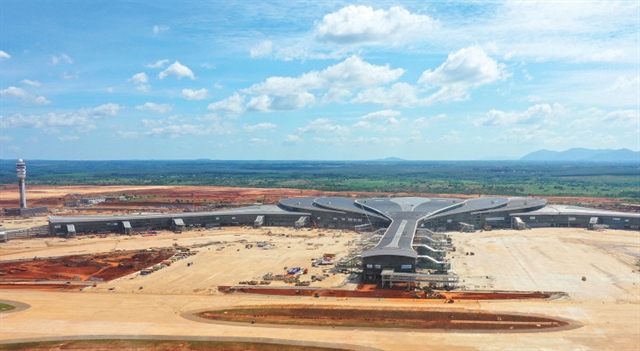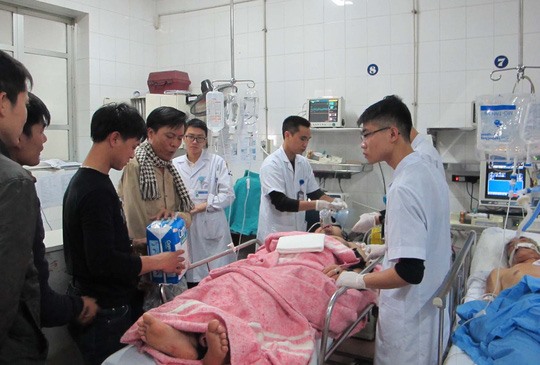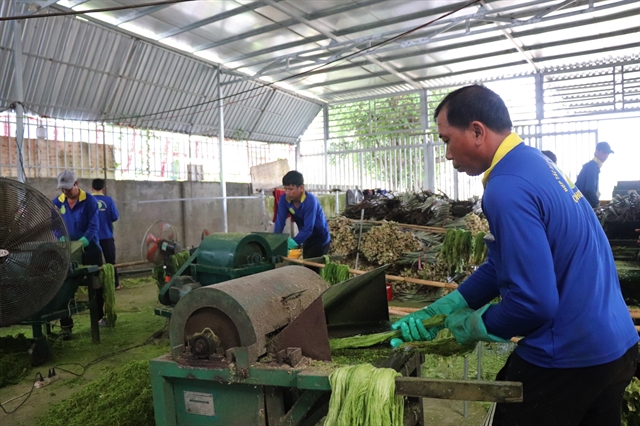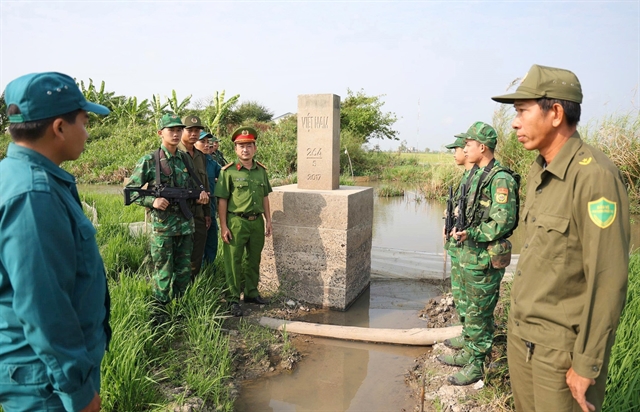

The number of assaults against medical staff climbed to a record high last year, with 25 cases reported to the police. Hospital violence apparently swept over the headlines year-round, prompting both Prime Minister Nguyễn Xuân Phúc and the National Assembly to voice concerns over the exacerbated situation.
 |
| Patients receive emergency aid at a hospital in Hà Nội. — Photo nld.vn |
HÀ NỘI — The number of assaults against medical workers climbed to a record high last year, with 25 cases reported to the police. Hospital violence stayed in the headlines year-round, prompting both Prime Minister Nguyễn Xuân Phúc and the National Assembly to voice concerns.
In the first months of 2018, two obstetricians in Yên Bái Province were physically abused by a husband and 10 others after the medical workers, who were delivering his baby, asked him not to climb on the window railing to film the birth.
This was among many reasons for patients and their family members to attack medical workers, 70 per cent of whom were doctors and 15 per cent nurses, according to the Ministry of Health.
The reasons ranged from a doctor’s refusal to conduct a fluid infusion to a drunken patient, or a doctor preventing a fight between patients. In another case, the family assumed the doctor’s diagnosis was wrong and hit him before forcing an apology out of the doctor.
Lawyer Bùi Đình Ứng from the Hà Nội Bar Association told the Lao Động (Labour) newspaper that while some medical workers’ attitude could have triggered the violence, the patients and their families – the assaulters – were mostly at fault in those attacks.
“Protection for the doctors and nurses is an important issue and must be improved for the sake of the (medical) staff,” Ứng said.
Ứng said most national and provincial hospitals had recruited their own security force to little avail, as the assaults kept happening despite the presence of security guards.
“We can see from those attacks that the security force at the hospitals was yet to play the real ‘security’ role but only to monitor the people entering and exiting the hospitals. Apparently, they could not protect medical staff should an incident occur,” he added.
Hà Nội’s Bạch Mai Hospital General Planning Department head Dương Đức Hùng told Người Lao Động (The Labourer) newspaper that the hospital dispatched more security guards to hotspots, for example the emergency room, after several cases of hospital violence. The hospital director board also worked with local police to tighten security near the hospital, he added.
Such measures will not eliminate violent actions in the hospital, he admitted, but at least it is hoped to ease and prevent the assaults.
Police in hospitals?
Minister of Health Nguyễn Thị Kim Tiến, who said that the health sector was alone in the fight against hospital violence, was looking for better security through “police posts” inside the hospitals.
Ministry of Public Security Chief of Staff, Major General Lương Tam Quang said that so far the ministry had yet to receive an official request from the health ministry to dispatch police officers to the hospitals, or to allow hospital security guards to carry supporting gear.
“Local police have always co-operated to protect hospitals. If there are any police officers to be stationed at the hospitals, it (the procedure) must follow the law,” he said.
Admitting the working environment was no longer safe for the medical staff, Nguyễn Huy Quang, head of the Department of Legal Affairs under the health ministry, said protective measures like hiring more security guards would only treat the symptom and not the real problem.
“Any solutions must include listening to what the patients and their families want and giving them a proper health consultation,” Quang said.
“The key is to solve the root of the issue.” — VNS




